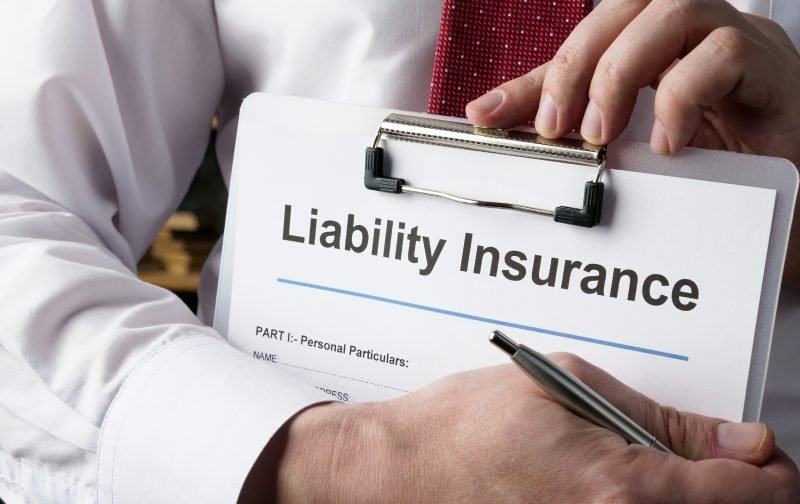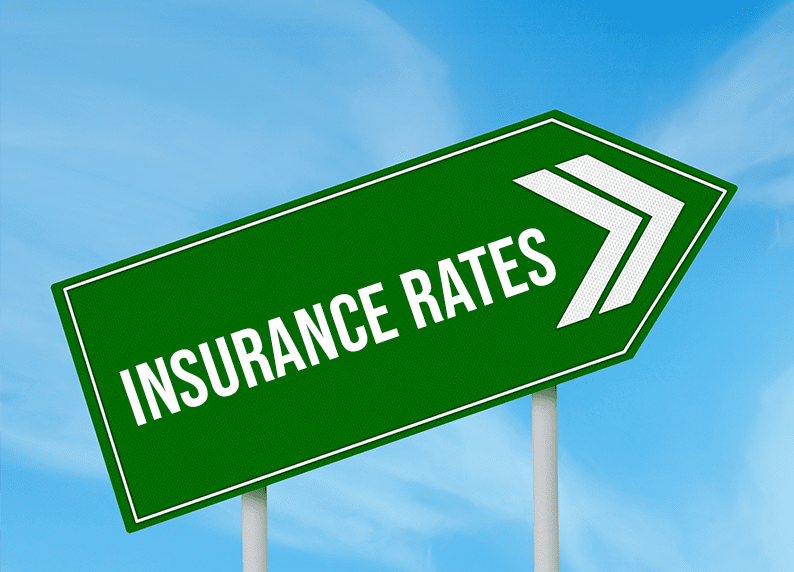Understanding Liability Insurance
Liability insurance is a critical component for small businesses, serving as a safeguard against potential legal claims and financial losses. Essentially, it protects business owners from the costs associated with lawsuits resulting from injuries, damages, or negligence related to their business operations. Given the unpredictable nature of conducting business, having adequate liability insurance is essential in ensuring longevity and stability.
There are several types of liability insurance that small business owners in Ohio should be aware of. The most common form is general liability insurance, which covers a broad array of claims, including third-party bodily injury, property damage, and advertising injury. This type of policy is fundamental for any business that interacts directly with clients or customers and is necessary for creating a trust-based relationship with potential clients.
Professional liability insurance, on the other hand, is particularly relevant for service-oriented businesses, such as consultants, doctors, or legal practitioners. This form of coverage protects against claims of negligence or errors in professional services provided, thus guarding the business against potential financial ruin due to lawsuits alleging failure to deliver a promised service or subpar performance.
Another important type of liability insurance is product liability insurance, which is crucial for businesses that manufacture or sell products. This policy covers claims related to injuries or damage caused by products that are defective or not as advertised. It is vital for businesses in the manufacturing sector, as it protects against the costs of lawsuits stemming from alleged product failures.
In conclusion, understanding the various types of liability insurance is paramount for small business owners in Ohio. By determining which coverage options align with their specific operational risks, business owners can effectively protect themselves from potential legal challenges and financial hazards. Researching where to get liability insurance for small business tailored to individual needs is a prudent step towards ensuring their business’s sustainability and success.
Legal Requirements for Businesses in Ohio
In Ohio, understanding the legal requirements surrounding liability insurance for small businesses is critical for compliance and risk management. While it is not universally mandated for all businesses in the state to carry liability insurance, certain types of businesses are subject to specific regulations that require such coverage. The most common categories that necessitate liability insurance include, but are not limited to, construction companies, medical professionals, and any businesses that handle food and beverages.
For example, contractors and tradespeople often need to have general liability insurance to protect themselves from claims of property damage or bodily injury that may arise from their work. Medical practitioners usually are mandated to carry professional liability insurance, also known as malpractice insurance, to safeguard against claims resulting from the provision of medical services. Similarly, restaurants and food service businesses may be required to obtain liability coverage to address risks associated with food safety and customer injuries on premises.
Moreover, businesses that choose to operate as Limited Liability Companies (LLCs) or corporations may find that obtaining liability insurance can also enhance their credibility and provide assurance to clients and partners. Not having sufficient coverage could expose business owners to significant financial liabilities arising from unforeseen incidents. Hence, understanding where to get liability insurance for small business in Ohio is crucial not just for compliance but also for promoting operational stability and fostering trust in business transactions.
Non-compliance with liability insurance regulations can have serious implications, including hefty fines and potential lawsuits. Therefore, those considering starting a small business in Ohio should conduct thorough research regarding their specific insurance needs and legal obligations. Consult with legal advisors or insurance professionals to ascertain the right type of coverage and to ensure adherence to state regulations.
Finding Insurance Providers in Ohio
In the search for liability insurance for small businesses in Ohio, business owners have several options to consider that can help them secure the required coverage. These options include referrals from business networks, the use of online insurance marketplaces, and consultations with local insurance agencies.
One of the best ways to find reliable liability insurance providers is through personal referrals. Engaging with fellow business owners within local chambers of commerce or professional organizations can lead to recommendations of trustworthy insurance agents or companies. These connections can provide valuable insights not only into the insurance providers’ reputation but also into the experiences of your peers in securing the right liability insurance for small businesses in Ohio. Networking events, trade shows, and local business gatherings are excellent venues to cultivate such relationships.
Furthermore, online insurance marketplaces have emerged as significant resources for small business owners seeking liability insurance options. These platforms allow users to compare various policies from multiple providers with ease. The convenience of applying online, obtaining quotes, and reviewing different coverage plans simplifies the searching process. While selecting a policy through an online marketplace, it’s crucial to evaluate the financial ratings and reviews of the insurance providers to ensure they are reputable and dependable.
Local insurance agencies also serve as an essential avenue for obtaining liability insurance for small businesses. These agencies often specialize in understanding the unique needs of businesses in Ohio and can tailor policies accordingly. Working with an agent can yield personalized service and negotiations based on the specific requirements of the business, which may lead to more favorable premiums and coverage terms.
In summary, entrepreneurs in Ohio seeking liability insurance for small businesses should explore a variety of channels, including personal referrals, online marketplaces, and local agencies, to find the most suitable insurance provider for their needs.
Comparing Liability Insurance Quotes
When seeking liability insurance for small business in Ohio, navigating through various quotes can be a daunting task. It is essential to analyze multiple factors that influence the coverage and costs associated with different insurance providers. A methodical approach is beneficial in determining the best option that caters to your specific business needs.
First and foremost, understanding the coverage limits of each policy is crucial. Coverage limits define the maximum amount an insurance provider will payout for claims. It is advisable to assess the inherent risks associated with your business operations and choose a coverage limit that adequately protects your assets and liabilities. Additionally, it may be beneficial to inquire whether the policy has any sub-limits for specific aspects, such as property damage or personal injury, which might affect comprehensive protection.
Deductibles are another significant factor to consider when comparing liability insurance quotes. A deductible is the amount you will pay out-of-pocket before the insurance coverage kicks in. Lower deductibles can result in higher premiums, thereby impacting your financial planning. Careful evaluation of your budget constraints and risk appetite will help you strike a balance between the deductibles and the premiums.
Moreover, premiums themselves warrant attention. While it might be tempting to select the lowest premium, this could lead to inadequate coverage or higher deductibles. Hence, it is prudent to compare the value offered by different policies rather than just their costs. Look for discounts or additional services that some providers might offer, which can enhance the policy’s value.
In conclusion, effectively comparing liability insurance quotes involves a comprehensive assessment of coverage limits, deductibles, and premiums. By focusing on these key aspects, small business owners in Ohio can identify the most suitable liability insurance that aligns with their individual requirements. This due diligence ultimately fosters a more secure business environment.
Questions to Ask Your Insurance Agent
When seeking liability insurance for small business in Ohio, it is essential to engage in a thorough conversation with your insurance agent. Doing so ensures you fully comprehend your options and the specifics of the coverage offered. Below are several key questions to ask your insurance agent:
1. What types of liability coverage are available? Understanding the different types of liability insurance is crucial. Ask your agent about general liability, professional liability, and product liability. Each type addresses distinct risks associated with business operations, so it is important to ascertain which ones are relevant to your specific situation.
2. What are the coverage limits? Inquire about the limits of the proposed liability insurance for small business. This includes the maximum amount your policy will pay for claims, which could vary depending on the type of incidents. Ensure the coverage limits align with the potential risks and needs of your business.
3. Are there any exclusions? Every insurance policy contains exclusions that outline situations or damages the policy will not cover. Ask your agent to specify these exclusions, as understanding them can prevent unexpected gaps in your insurance coverage.
4. What endorsements or additional coverage options do you recommend? Depending on your business industry, your agent may suggest various additional endorsements to expand your policy. These could include coverage for cyber liability, employment practices liability, or specific risks associated with your operations.
5. How do claims processes work? Knowing how to file a claim and the processes involved is critical when selecting liability insurance for small business in Ohio. Request detailed information on the steps you need to take if a liability issue arises and how quickly claims are typically processed.
By asking these questions, small business owners can gain clarity and ensure they choose the right liability insurance, providing essential protection for their operations.
Online Resources and Tools for Liability Insurance
Understanding liability insurance for small business in Ohio is crucial for any entrepreneur looking to safeguard their enterprise. Fortunately, numerous online resources and tools can assist small business owners in familiarizing themselves with this essential insurance type. One of the most comprehensive websites is the Insurance Information Institute (III), which provides resources tailored to businesses, including articles, industry news, and educational materials on liability insurance, helping owners make informed decisions.
Another valuable platform is the Small Business Administration (SBA) website. The SBA offers an array of information specifically catered to small business owners, which includes guidelines on liability insurance, tips for choosing a provider, and links to state-specific resources. This platform can serve as a great starting point for comprehending the various aspects of liability coverage.
For those looking to estimate their insurance needs, online calculators are available on various insurance company websites. These tools allow small business owners to input specific information about their operations, such as the number of employees and revenue generated, to estimate the amount of coverage they may require. Utilizing these calculators can provide a clearer picture of potential costs and help with budgeting decisions when exploring where to get liability insurance for small business. Additionally, many insurance providers offer free quotes online, making it easier to compare policies and find the most suitable coverage.
Finally, engaging with forums and online communities can prove invaluable. Websites like Reddit or specialized platforms such as BizSugar allow business owners to connect and share personal experiences regarding liability insurance for small business in Ohio. These discussions can reveal insights about different providers, policy options, and real-life cases that may not be readily accessible through traditional resources. By leveraging these online tools and communities, small business owners can better navigate their options and make informed insurance decisions.
Cost Considerations for Small Business Liability Insurance
The cost of liability insurance for small businesses in Ohio can vary significantly depending on several key factors. Understanding these variables is crucial for business owners seeking to protect their assets while managing costs effectively. One primary factor influencing the premium is the nature of the business itself. Industries that are deemed high-risk, such as construction or manufacturing, tend to incur higher liability insurance costs compared to lower-risk sectors like consulting or tech services.
Another important consideration is the size of the business. Generally, larger businesses or those with multiple locations may face higher premiums due to increased exposure to liability claims. The number of employees also plays a role; more employees may lead to a greater potential for incidents that could result in claims, thereby impacting coverage costs. It is essential for entrepreneurs to accurately report their employee count to ensure that they receive appropriate quotes for liability insurance for small businesses in Ohio.
Claims history significantly influences the pricing of liability insurance as well. A business with a history of frequent claims can expect to pay higher premiums as insurers perceive it to be a greater risk. On the other hand, businesses with a clean claims history are often rewarded with lower rates, making risk management and loss prevention strategies crucial for sustainability.
Overall, when exploring where to get liability insurance for small businesses, it is important to request quotes from various providers to compare coverage options and pricing. By understanding these cost considerations and taking proactive steps, business owners can better navigate the complexities of obtaining liability insurance while ensuring they secure adequate protection for their operations.
Tips for Choosing the Right Coverage
When small business owners seek information on where to get liability insurance for small business in Ohio, understanding their unique needs is vital in selecting the appropriate coverage. The first step involves a thorough assessment of the risks specific to the business. Each industry carries inherent risks that can impact liability exposure. For instance, a construction company may face more physical accidents than a consulting firm, necessitating different types of coverage. Carefully evaluating these risks can guide business owners in determining the necessary levels of insurance.
Moreover, the size of the business plays a crucial role in coverage requirements. Small businesses may have different liability insurance needs than larger corporations. Owners should consider their revenue, number of employees, and overall scope of operations. Understanding the scale of their business can aid in refining the insurance options available. Additionally, regulatory requirements might differ based on business size, further emphasizing the importance of a tailored approach to liability insurance.
Another essential factor is recognizing industry-specific considerations. Different sectors may have varying legal obligations and claims frequency affecting liability insurance for small business in Ohio. For example, businesses in healthcare must comply with strict regulations around patient care, which may necessitate higher coverage limits. On the other hand, retail operations might focus more on slip-and-fall accidents. Small business owners should research their industry benchmarks to ensure they select appropriate coverage that meets both regulatory and risk management needs.
Finally, consulting with an experienced insurance broker can provide valuable insights. They can offer guidance on available policies, coverage limits, and the nuances of liability insurance. This expert assistance is particularly helpful in navigating the complex landscape of small business liability insurance, making the process less daunting. Taking these steps upfront will empower business owners to choose the right liability insurance that aligns with their operational realities.
Real-life Case Studies and Testimonials
The journey of obtaining liability insurance for small businesses can often be fraught with challenges; however, numerous small business owners in Ohio have successfully navigated this process. For instance, one small retail shop owner recounted their experience of initially underestimating the complexity of selecting appropriate coverage. After facing a minor legal claim from a customer, they recognized the necessity of liability insurance. Following this setback, they sought guidance from a local insurance broker who specialized in liability insurance for small businesses in Ohio. With personalized assistance, the owner was able to identify a suitable policy that covered their unique business needs. This experience highlighted the importance of thorough research and professional advice in making informed insurance decisions.
Another notable case is that of a small restaurant owner who faced challenges stemming from a slip-and-fall incident. Initially, they relied on a general insurance policy that did not provide adequate coverage for liability claims. After the incident, they were encouraged by a fellow business owner to invest time in learning about the different types of liability insurance available. They attended workshops and started networking with other local business owners, many of whom shared testimonials about their experiences with liability insurance for small businesses. Ultimately, this restaurant owner was able to secure a comprehensive liability policy that offered extensive protection and peace of mind, showcasing how education and community support were instrumental in their decision-making process.
These case studies illustrate the real-world implications of liability insurance for small businesses in Ohio. They convey the significance of understanding specific coverage options, seeking expert guidance, and building relationships within the business community. As these owners discovered, the right insurance not only protects their enterprises but also instills confidence in their ability to operate successfully in a potentially litigious environment.
FAQ: Where to Get Liability Insurance for Small Businesses in Ohio
What is liability insurance for small businesses?
Liability insurance protects your Ohio small business from financial loss if you’re held responsible for injuries, property damage, or other claims. The most common type is general liability insurance, which covers accidents, injuries, and damages.
Is liability insurance required for small businesses in Ohio?
Ohio does not mandate general liability insurance for all businesses. However, certain industries, contracts, or landlords may require it. Workers’ compensation coverage is required if you have employees.
Where can I buy liability insurance in Ohio?
Small business owners in Ohio can purchase coverage through:
-
Local insurance agents and brokers who specialize in small business policies.
-
National insurance companies such as State Farm, Nationwide, Allstate, and The Hartford.
-
Small business insurance marketplaces like Hiscox, Next Insurance, and Simply Business, which offer quick online quotes.
-
Trade associations that sometimes provide group insurance plans.
How much does small business liability insurance cost in Ohio?
Costs vary depending on industry, location, and coverage limits. On average, small businesses in Ohio pay $30–$60 per month ($360–$720 annually) for a basic general liability policy. Higher-risk industries (like construction) will pay more.
What types of liability insurance do Ohio businesses usually need?
Common types include:
-
General Liability Insurance – Covers accidents, injuries, and property damage.
-
Professional Liability (Errors & Omissions) – Protects against mistakes in professional services.
-
Product Liability – Covers claims related to defective products.
-
Commercial Auto Liability – Required if your business owns or uses vehicles.
Can I get liability insurance online in Ohio?
Yes. Many providers (like Hiscox, NEXT, and Nationwide) allow you to get quotes, purchase, and manage policies online—often within minutes.
What should I look for in an Ohio liability insurance policy?
Key things to consider:
-
Coverage limits (commonly $1M per claim / $2M aggregate).
-
Industry-specific protections (like product liability for manufacturers).
-
Reputation of the insurer (financial stability, customer service).
-
Bundled policies (like a Business Owner’s Policy, which combines liability and property insurance at a lower cost).
Read More:
- Understanding Florida Condo Homeowners Insurance: What You Need to Know
- Understanding Comprehensive Vehicle Insurance: What You Need to Know
- Health Insurance Options for Undocumented Immigrants: What’s Available?
- What Home Insurance in Ohio Doesn’t Cover
- Do I Need Travel Insurance for Europe? Understanding the Essentials




